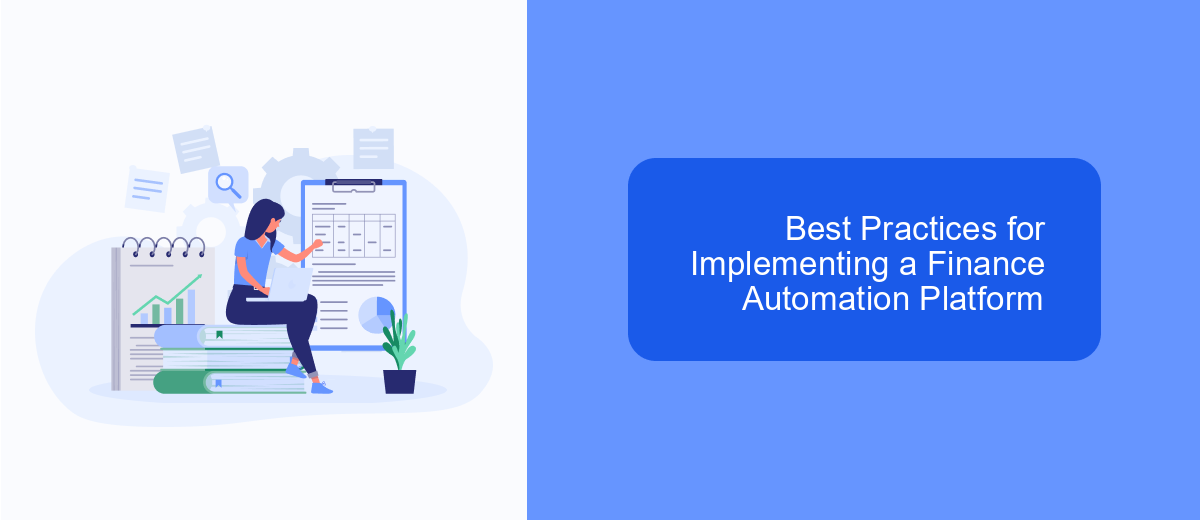In today's rapidly evolving financial landscape, businesses are increasingly turning to finance automation platforms to streamline operations and enhance decision-making. These platforms offer powerful tools that automate repetitive tasks, reduce errors, and provide real-time insights. By integrating advanced technologies such as artificial intelligence and machine learning, finance automation platforms empower organizations to optimize resource allocation, improve efficiency, and drive sustainable growth in a competitive market.
Introduction
In the rapidly evolving landscape of financial technology, automation platforms have emerged as pivotal tools for businesses seeking efficiency and accuracy. These platforms streamline financial operations by leveraging advanced technologies such as artificial intelligence and machine learning, enabling organizations to handle complex financial tasks with minimal human intervention. As companies strive to remain competitive, the adoption of finance automation platforms has become increasingly crucial.
- Enhancing operational efficiency and reducing manual errors.
- Providing real-time data analytics for informed decision-making.
- Facilitating compliance with regulatory standards.
- Reducing costs associated with financial management processes.
Finance automation platforms not only transform how financial departments operate but also redefine the strategic role of finance professionals. By automating routine tasks, these platforms free up valuable time for finance teams to focus on strategic planning and analysis. As a result, organizations can better position themselves for growth and innovation in an increasingly digital world. Embracing these technologies is no longer optional but a necessity for businesses aiming to thrive in the modern financial ecosystem.
Benefits of Finance Automation

Finance automation offers numerous advantages that can significantly enhance the efficiency and accuracy of financial operations. By automating repetitive tasks such as data entry, invoice processing, and financial reporting, businesses can reduce human error and free up valuable time for more strategic activities. This not only improves the speed and reliability of financial processes but also allows finance teams to focus on analysis and decision-making that drive business growth. Additionally, automation tools can provide real-time insights and analytics, enabling companies to make informed financial decisions swiftly.
Integrating finance automation platforms with existing systems can further streamline operations. Services like SaveMyLeads simplify this process by allowing seamless integration between various applications, ensuring that data flows smoothly across different platforms. This integration capability is crucial for maintaining data consistency and improving collaboration between departments. Moreover, automated systems can enhance compliance and security by maintaining accurate records and providing audit trails. Overall, finance automation not only boosts operational efficiency but also supports strategic financial management, offering a competitive edge in today's fast-paced business environment.
Key Considerations for Choosing a Finance Automation Platform

When selecting a finance automation platform, it's crucial to evaluate several key factors to ensure it aligns with your business needs and enhances operational efficiency. A well-chosen platform can streamline financial processes, reduce errors, and provide valuable insights.
- Scalability: Ensure the platform can grow with your business and handle increasing data volumes.
- Integration: Check if the platform seamlessly integrates with your existing systems and software.
- User-Friendliness: The platform should be easy to use, minimizing the learning curve for your team.
- Security: Robust security features are essential to protect sensitive financial data.
- Cost: Consider the total cost of ownership, including implementation, subscription, and maintenance fees.
By carefully considering these factors, you can select a finance automation platform that not only meets your current requirements but also supports future growth. A strategic choice will lead to improved financial management, allowing your business to focus on strategic objectives and innovation.
Best Practices for Implementing a Finance Automation Platform

Implementing a finance automation platform can significantly streamline financial processes, reduce errors, and enhance decision-making. However, to maximize its benefits, it's essential to follow certain best practices. Start by clearly defining your objectives and aligning them with your organization's strategic goals. This ensures that the platform will address your specific needs and deliver expected outcomes.
Next, involve key stakeholders from various departments in the planning and implementation process. Their insights and feedback are crucial for selecting the right tools and ensuring seamless integration with existing systems. Additionally, consider the scalability and flexibility of the platform to accommodate future growth and changes.
- Conduct a thorough needs assessment to identify specific automation requirements.
- Choose a platform that offers robust security features to protect sensitive financial data.
- Ensure comprehensive training for staff to facilitate smooth adoption and minimize resistance.
- Regularly review and update the platform to leverage new features and improvements.
Finally, establish metrics to evaluate the performance and impact of the finance automation platform. Continuous monitoring and assessment will help identify areas for improvement and ensure that the platform continues to support your organization's financial objectives effectively.
- Automate the work with leads from the Facebook advertising account
- Empower with integrations and instant transfer of leads
- Don't spend money on developers or integrators
- Save time by automating routine tasks
Future Trends in Finance Automation
The future of finance automation is poised to be transformative, driven by advancements in artificial intelligence and machine learning. These technologies are expected to enhance predictive analytics, allowing businesses to make more informed financial decisions. Automation platforms will increasingly integrate with other digital tools, streamlining processes and improving efficiency. The use of blockchain technology is also anticipated to rise, offering secure and transparent financial transactions. As these innovations progress, finance professionals will shift from manual tasks to more strategic roles, focusing on interpreting data and driving business growth.
Integration will play a crucial role in the evolution of finance automation. Platforms like SaveMyLeads are simplifying the process by enabling seamless connections between various financial tools and systems. This ensures real-time data flow and reduces the risk of errors, leading to more accurate financial reporting. As companies adapt to these changes, they will benefit from increased agility and the ability to respond swiftly to market demands. The future of finance automation promises not only efficiency but also a more strategic approach to financial management.
FAQ
What is a Finance Automation Platform?
How can a Finance Automation Platform benefit my business?
Is it difficult to integrate a Finance Automation Platform with existing systems?
What should I consider when choosing a Finance Automation Platform?
Can a Finance Automation Platform handle compliance and regulatory requirements?
Don't waste another minute manually transferring leads from Facebook to other systems. SaveMyLeads is a simple and effective tool that will allow you to automate this process so that you don't have to spend time on the routine. Try SaveMyLeads features, make sure that this tool will relieve your employees and after 5 minutes of settings your business will start working faster.

